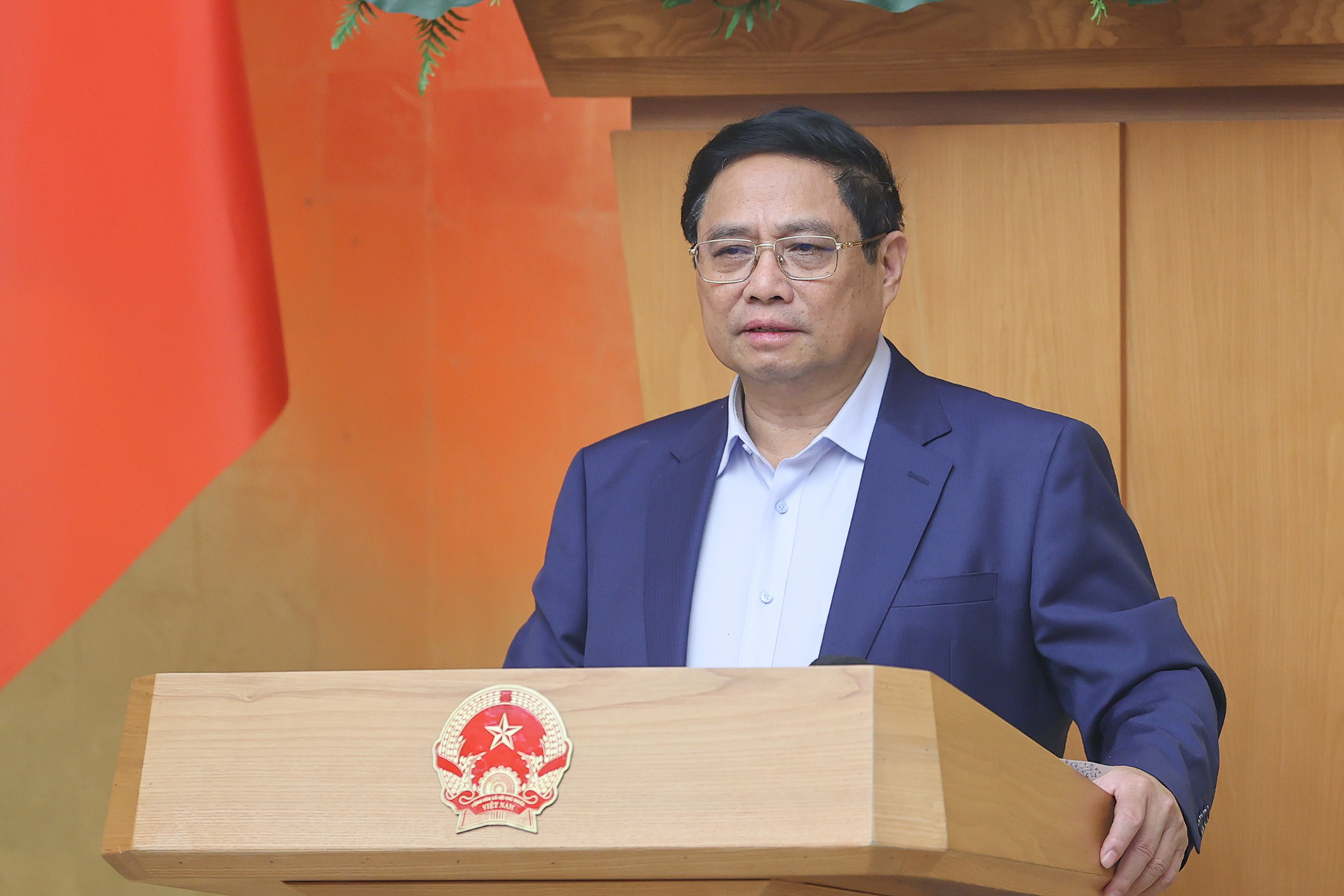
On November 9, Prime Minister Pham Minh Chinh presided over the October regular Government meeting to discuss key topics. He noted that the socio-economic situation continues to improve, with each month, quarter, and year showing growth over the last. If annual GDP growth exceeds 7%, all 15 of the 2024 targets will be met or surpassed.
However, the Prime Minister emphasized the ongoing pressures from global and regional economic conditions, especially in managing exchange rates, interest rates, and the domestic supply and pricing of goods and services.
The Prime Minister urged all government levels and sectors to rigorously pursue assigned tasks and goals, aiming to meet or exceed all 15 of the primary 2024 targets, creating momentum for 2025.
Key targets include Q4 GDP growth of around 7.4-7.6%, with annual growth over 7%, inflation kept below 4.5%, credit growth at around 15%, and state revenue increasing by at least 15%.
He called for proactive and flexible monetary policy management, closely coordinated with fiscal policy and other macroeconomic measures. Additionally, he emphasized the importance of tax and fee reductions, deferrals, and extensions, and directed relevant authorities to evaluate and propose further tax and fee adjustments as needed.
Investment in public projects and the three national target programs should be expedited, and private investment should be promoted, alongside stronger public-private partnerships and selective FDI attraction.
Policies to support sectors like semiconductor technology, AI, and innovation are encouraged to draw multinational corporations and strategic investors to Vietnam.
The Prime Minister also directed the Ministry of Culture, Sports, and Tourism to coordinate with localities on tourism attraction policies. Meanwhile, the Ministry of Public Security and the Ministry of Foreign Affairs were instructed to review and implement visa policies, including waivers for select countries to boost tourism.
He emphasized the importance of developing a semiconductor industry strategy and a skilled workforce for this sector. Additionally, he urged the formulation of an international and regional financial center plan, as well as carbon market and free trade zone proposals at the local level.
He further emphasized accelerating public investment disbursement and moving forward with key projects, such as the Lao Cai – Hanoi – Hai Phong railway, scheduled to begin construction in 2025, followed by the Lang Son – Hanoi railway.
The Prime Minister highlighted the importance of institutional reform, calling it the “breakthrough of all breakthroughs.” He emphasized the need to improve legislation, streamline administrative procedures, and promptly address overdue regulatory documents to ensure laws are implemented effectively.
The government will establish a steering committee and support team to streamline the apparatus as outlined in Resolution 18 of the Central Committee, which aims to reorganize the political system for efficiency.
“We cannot reach our 2030 and 2045 development goals without sustained double-digit growth in the coming decades. This growth is achievable if we can remove institutional barriers and unlock the full potential of social resources,” the Prime Minister stressed, urging ministers and deputy prime ministers to focus on this mission.
The State Bank of Vietnam was instructed to swiftly submit a plan for handling the remaining specially monitored banks and finalize a resolution for SCB.
The Ministry of Health was urged to resolve outstanding issues related to the second facility projects of Bach Mai and Viet Duc hospitals.
The Ministry of Industry and Trade, in coordination with the Government Inspectorate and relevant agencies, was tasked with resolving issues facing renewable energy projects.
Tran Thuong